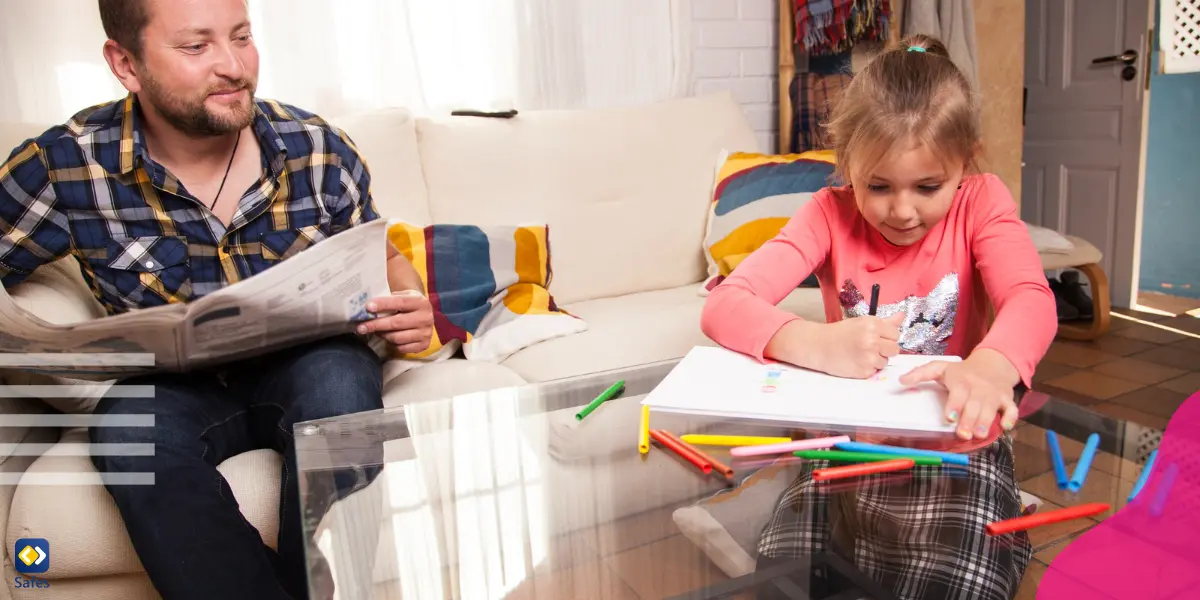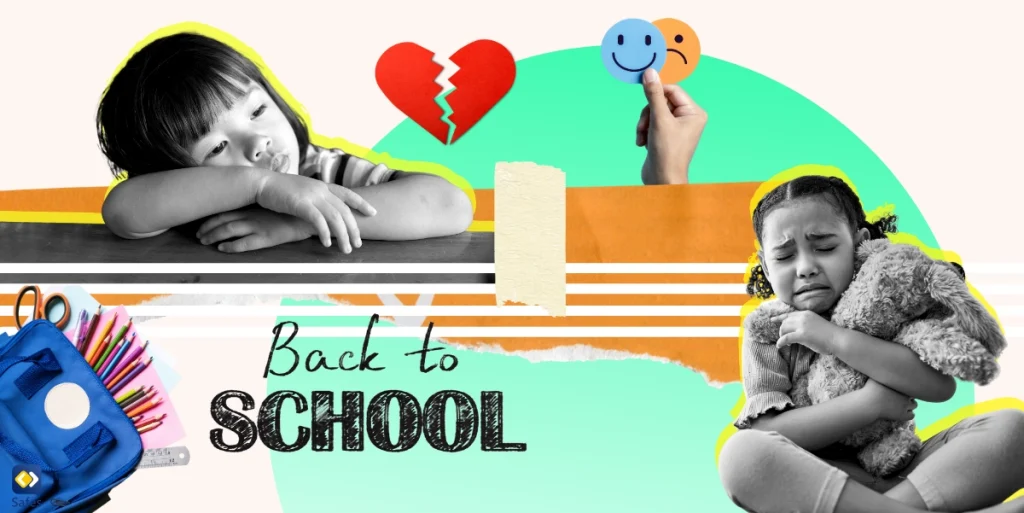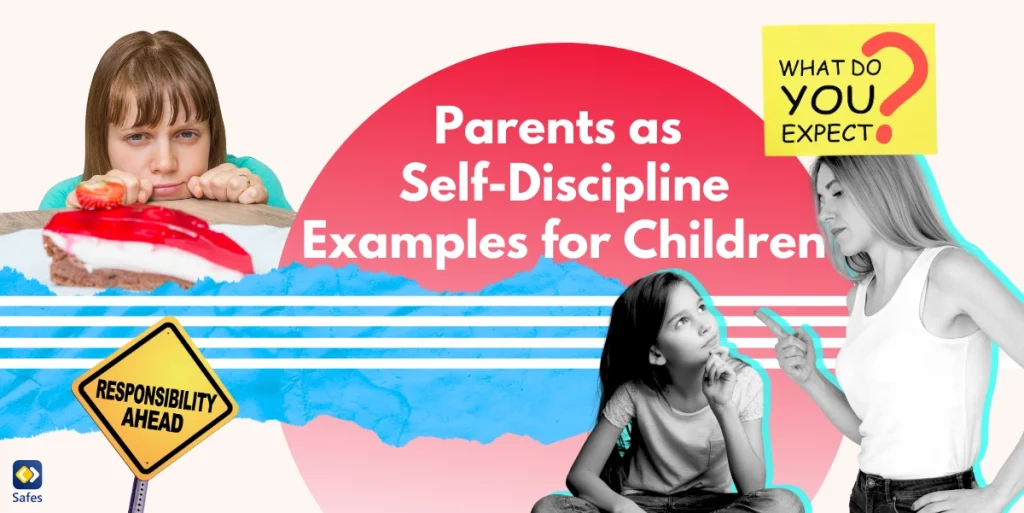As parents, we naturally want to shower our children with love and affection, but sometimes our expressions of love can become overwhelming and even harmful. One such phenomenon that has gained attention recently is “love bombing.” Therefore, it’s important to know how to stop love bombing your children and prevent harmful effects.
Download and Start Your Free Trial of the Safes Parental Control App
Love bombing refers to the excessive praise, attention, and affection that some parents shower on their children. While it may seem like a positive thing, love bombing can actually have negative consequences for children’s development and emotional well-being.
This blog will explore what love bombing is, why it can be detrimental, and most importantly, how to stop it. So, let’s start with some examples of love bombing.
What Are Love Bombing Examples?
Love bombing can manifest in various forms, often marked by excessive praise, attention, and material rewards. As a parent, you may not notice you are actually love-bombing your child. So, here are some common examples, showing the signs you need to keep an eye on.
- Constant Praise: Parents may constantly shower their children with compliments, regardless of their actual achievements or behavior. This can create unrealistic expectations and a sense of entitlement in the child.
- Over-the-Top Gifts: Some parents may use material gifts as a way to express love, often giving their child expensive or lavish presents frequently. In fact, gifts can be a way to show affection. However, excessive gift-giving can overshadow other important aspects of parent-child relationships.
- Overindulgence: Love bombing can involve indulging every child’s desire or request, such as breaking the screen time limit, or eating unhealthy foods. This will lead to a lack of discipline and self-control in the child.
- Overbearing Attention: A love bombing narcissist parent may constantly hover over their child, never giving them space to explore and develop independence. As a result, the child never gains the ability to develop autonomy and self-confidence.
- Ignoring Negative Behavior: Love bombing parents may overlook or dismiss negative behavior in their child. This way, the child won’t learn important lessons about responsibility and consequences.

How to Stop Love Bombing Your Children?
Stopping love bombing and transitioning to a more balanced parenting approach requires awareness and intentional changes. Here are some steps to help parents stop love bombing their children.
First, you need to understand the signs of love bombing in your own parenting behavior. You may also make sure you don’t have the signs of a narcissistic parent. Then, educate yourself about the potential negative effects of love bombing on children’s development, and learn essential skills, like how to manage emotions. Understanding the long-term consequences can motivate you to make changes in your parenting approach. After that, you need to work on your child’s abilities and behaviors that have been lost due to love bombing. The following tips will help you develop their personality:
- Avoid placing undue pressure on your child to constantly excel or meet unrealistic standards.
- Set clear and consistent boundaries for behavior, screen time, and rewards in your household.
- Foster your child’s independence and self-reliance by allowing them to make age-appropriate choices and decisions.
- Encourage them to take on responsibilities and learn from their mistakes, rather than keeping them away from failure.
- Instead of relying solely on excessive praise and rewards to express love, focus on building a nurturing and supportive relationship with your child through quality time.
- Offer praise and encouragement when warranted, but also provide constructive feedback and guidance.
- Help your child develop a healthy sense of self-esteem by praising their efforts and progress rather than just their achievements.
- Encourage them to develop their strengths and interests, and support them in overcoming challenges and setbacks.
In addition to the tips and tricks mentioned above, you can always consider seeking support from a therapist, parenting coach, or support group. They can provide guidance, resources, and strategies to help you adopt a healthier parenting approach.
Do Narcissist Parents Tend to Love Bomb Their Children?
Love bombing is often associated with narcissism, as it can be a tactic used by narcissists to manipulate and control others. Therefore, narcissistic parents tend to show love bombing behaviors toward their children as a means of controlling and manipulating them. They may use excessive praise, attention, and material rewards to elicit admiration and loyalty from their children.
However, this love bombing is often superficial and conditional, serving the narcissistic parent’s agenda rather than genuinely nurturing the child’s well-being. Over time, the child may come to realize the insincerity of these displays of affection and may suffer emotional harm from the manipulative tactics of the narcissistic parent.
How Do Love Bombing Parents Affect Children?
Love bombing parents can have a significant impact on their children’s development and well-being, often leading to various negative outcomes. Here are some ways in which love bombing can affect children.
Dependency
Children who receive constant praise and attention might find it hard to feel good about themselves without someone else’s approval. This could make them rely too much on what their parents or other people think of them to feel confident. As a result, they might not learn how to believe in themselves and trust their own abilities. Instead, they might always look for someone else to approve them.
Moreover, dependency comes with love bombing anxious attachment, where children deal with a deep-seated fear of abandonment and the need for constant validation. This can create a temporary sense of security and validation for children, but it often leads to unhealthy relationship dynamics characterized by dependency and insecurity.
Entitlement
With constantly receiving gifts, praise, and attention, it’s easy to get used to it, feeling like you deserve special treatment all the time. Children might expect to get what they want right away and feel upset when they don’t. This can also affect their relationships in the future.
Poor Emotional Regulation
Love bombing parents often try to protect their children from negative experiences. This way, children are less likely to learn how to handle their own feelings or deal with difficult situations. It might be hard for them to manage stress, frustration, or disappointment, leading to severe emotions like anger or sadness. Without learning healthy ways to cope with difficulties, they might start avoiding problems or trying to escape from them.
Low Self-Esteem
It might seem strange, but giving kids constant praise and attention can make them feel less worthy. Based on an article by a group of experts, including Claire Strutzenberg, narcissism is strongly linked to low self-esteem. Therefore, parents who show their children excessive affection are likely to suffer from low self-esteem and transfer it to their children. If children think they’re only lovable or worthy when they’re perfect, they may always be afraid of failing or being rejected. This can make them feel unsure of themselves and always look for other people’s approval.

Is There a Relationship Between ADHD and Love Bombing?
Love-bombing behaviors can sometimes be observed in parents with ADHD, especially if they struggle with impulsivity or difficulty regulating emotions. These parents may unintentionally show their children excessive affection or praise as a way to compensate for the challenges they face in managing their own emotions or behavior. Therefore, recognizing and addressing ADHD love bombing behaviors is crucial to ensuring a healthy and balanced parent-child relationship.
However, it’s important to note that love bombing can occur in parents regardless of whether they have ADHD. It is often influenced by various factors such as parenting style, attachment patterns, and individual personality traits.
Final Word
While the intention behind showering children with praise and attention may stem from a place of love, it can easily turn into love bombing and negatively affect children. Parents need to recognize the importance of setting boundaries, promoting independence, and cultivating resilience in their children. In some cases, the cycle of abuse and love bombing is closely tied to each other, where a parent excessively praises the child before potentially transitioning into controlling or manipulative behaviors. As parents, we must provide support and guidance while also allowing our children the space to learn and grow from their experiences.
In this time and age, where children have wide access to technology and online content, safeguarding their well-being has become more challenging than ever. This is where Safes, our parental control app, comes in. With Safes, parents can monitor and manage their children’s online activities, set appropriate boundaries, and protect them from harmful content.
Parental controls on Android or other devices offer limited features to track children’s online activities. But Safes’s main goal is to give parents peace of mind knowing they have everything under control. This will ease parenting in this modern era. So, why wait?! Download Safes for Android and iOS and benefit from our free trial option to see how the app works.
Your Child’s Online Safety Starts Here
Every parent today needs a solution to manage screen time and keep their child safe online.
Without the right tools, digital risks and excessive screen time can impact children's well-being. Safes helps parents set healthy boundaries, monitor activity, and protect kids from online dangers—all with an easy-to-use app.
Take control of your child’s digital world. Learn more about Safes or download the app to start your free trial today!




